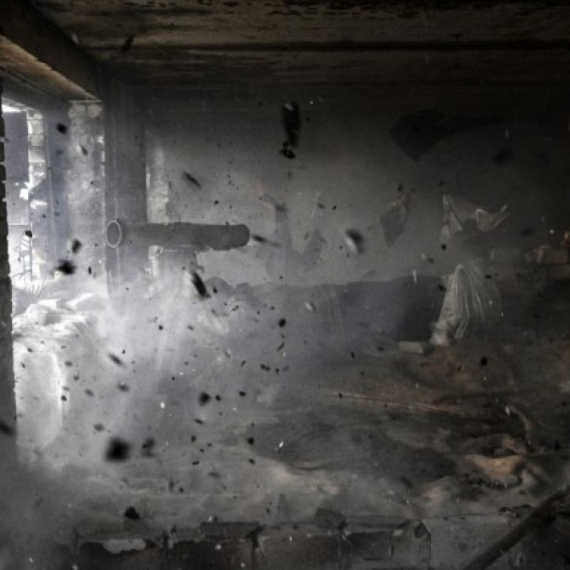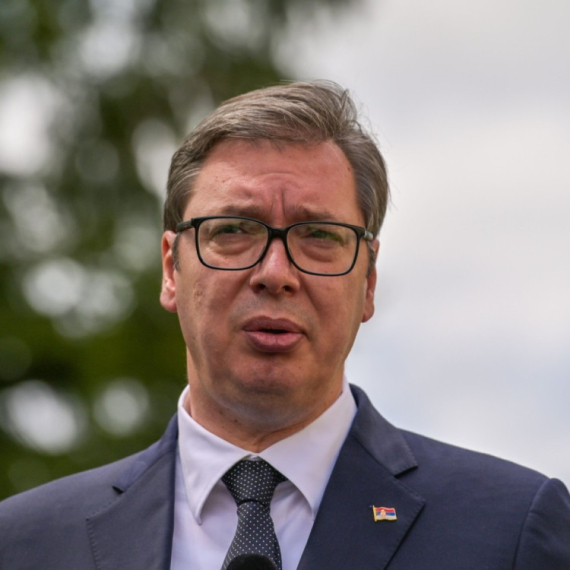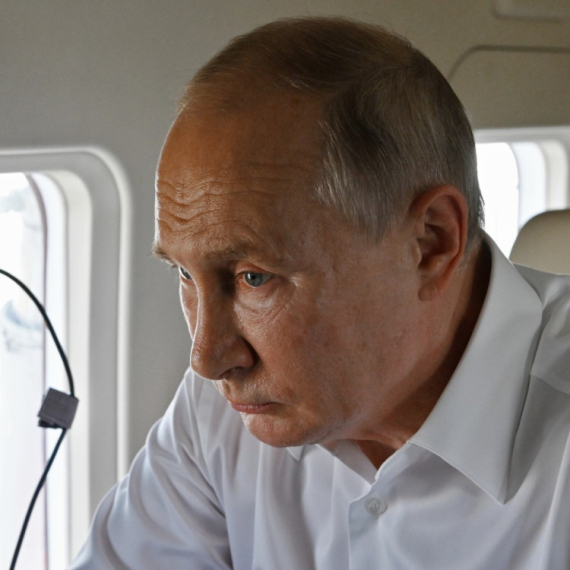“EULEX blocking resolution consensus”
Kosovo Minister Goran Bogdanović says that the “formulation for EULEX” is the only obstacle to reaching agreement over the Kosovo resolution text.
Friday, 03.10.2008.
16:13

Kosovo Minister Goran Bogdanovic says that the “formulation for EULEX” is the only obstacle to reaching agreement over the Kosovo resolution text. “We will see what happens next week, but I still expect, given the seriousness of the situation and the message we have to send, primarily to the Kosovo Serbs, that we will be able to come to a common position regarding the Kosovo resolution,” Bogdanovic said. “EULEX blocking resolution consensus” After consultations with officials from the Democratic Party of Serbia (DSS), New Serbia (NS) and the minority parties, Bogdanovic said that a resumption of consultations had been agreed on and that he had listened to the suggestions and objections of the various parties, adding that he would respond to them next week. Bogdanovic said that the government’s formulation whereby any kind of international presence in Kosovo would have to have the approval of the UN Security Council and Serbia, was “acceptable for everyone.” The DSS wants the resolution to state that the deployment of EULEX in Kosovo is unacceptable for Serbia. To the DSS’s call for lawsuits to be filed against countries that have recognized Kosovo independence, Bogdanovic said that this would be discussed, but that this was not acceptable at a time when the UN General Assembly was considering Serbia’s initiative to seek the International Court of Justice’s opinion on the legality of Kosovo’s unilaterally declared independence. Bogdanovic said that it would not be good for parliament to debate a variety of draft resolutions, and that he hoped that the proposals from other MP groups would be withdrawn from parliamentary procedure. The DSS, NS and the Serb Radical Party, as well as the Liberal Democratic Party, earlier submitted their draft resolutions, which have all been included on the agenda of the next parliamentary session. Bogdanovic said that a joint resolution would “send a clear message to the Serbs in Kosovo and the international community that Serbia would not foresake Kosovo.”
“EULEX blocking resolution consensus”
After consultations with officials from the Democratic Party of Serbia (DSS), New Serbia (NS) and the minority parties, Bogdanović said that a resumption of consultations had been agreed on and that he had listened to the suggestions and objections of the various parties, adding that he would respond to them next week.Bogdanović said that the government’s formulation whereby any kind of international presence in Kosovo would have to have the approval of the UN Security Council and Serbia, was “acceptable for everyone.”
The DSS wants the resolution to state that the deployment of EULEX in Kosovo is unacceptable for Serbia.
To the DSS’s call for lawsuits to be filed against countries that have recognized Kosovo independence, Bogdanović said that this would be discussed, but that this was not acceptable at a time when the UN General Assembly was considering Serbia’s initiative to seek the International Court of Justice’s opinion on the legality of Kosovo’s unilaterally declared independence.
Bogdanović said that it would not be good for parliament to debate a variety of draft resolutions, and that he hoped that the proposals from other MP groups would be withdrawn from parliamentary procedure.
The DSS, NS and the Serb Radical Party, as well as the Liberal Democratic Party, earlier submitted their draft resolutions, which have all been included on the agenda of the next parliamentary session.
Bogdanović said that a joint resolution would “send a clear message to the Serbs in Kosovo and the international community that Serbia would not foresake Kosovo.”





















Komentari 0